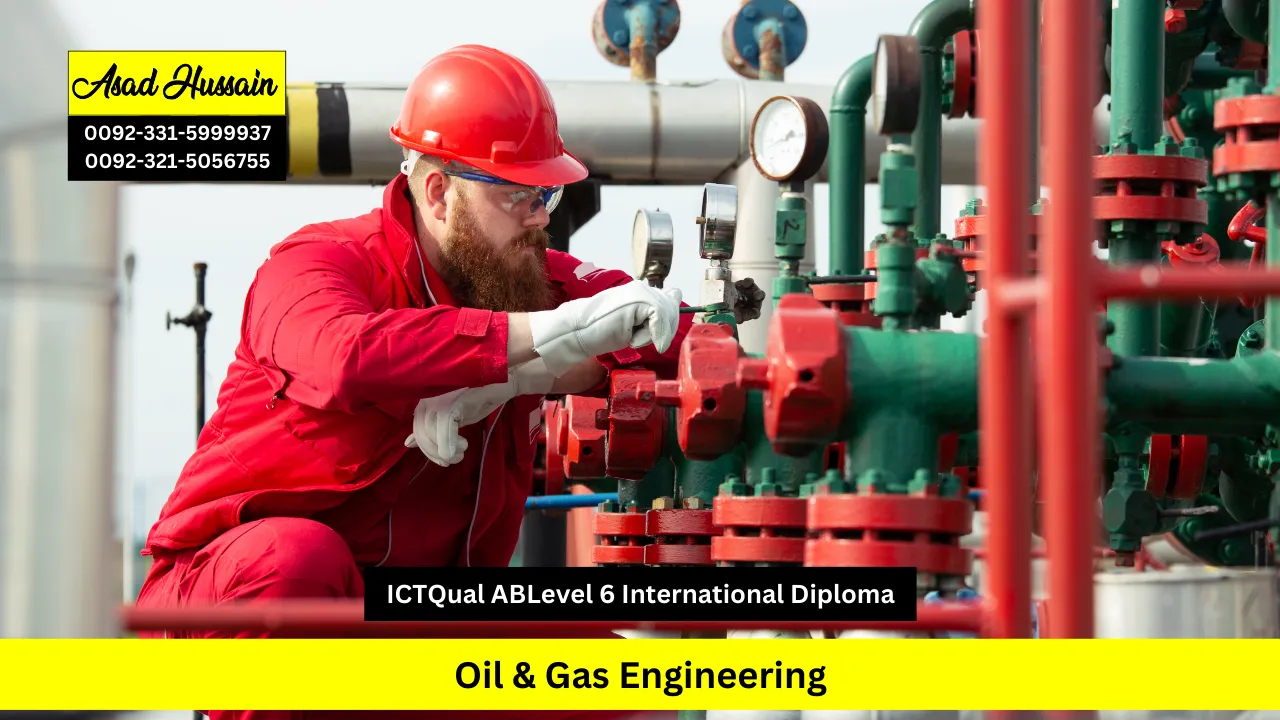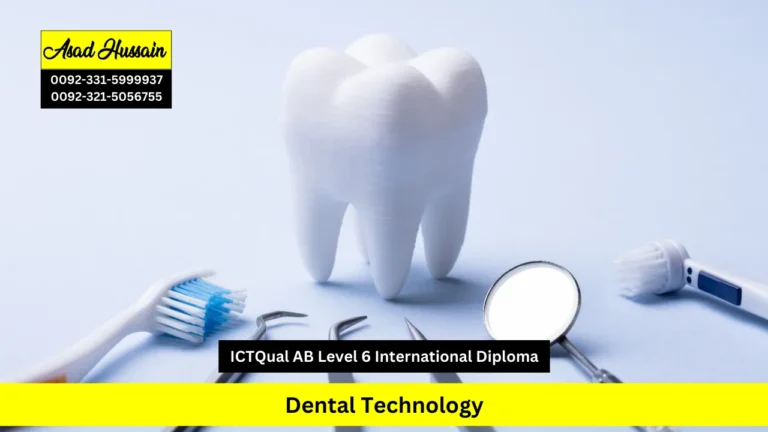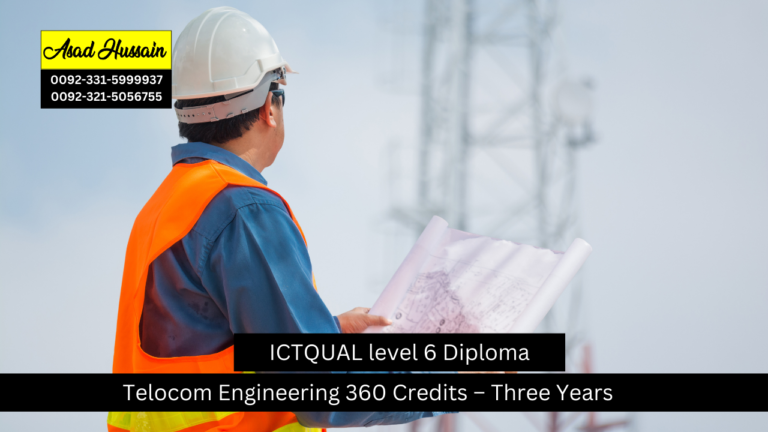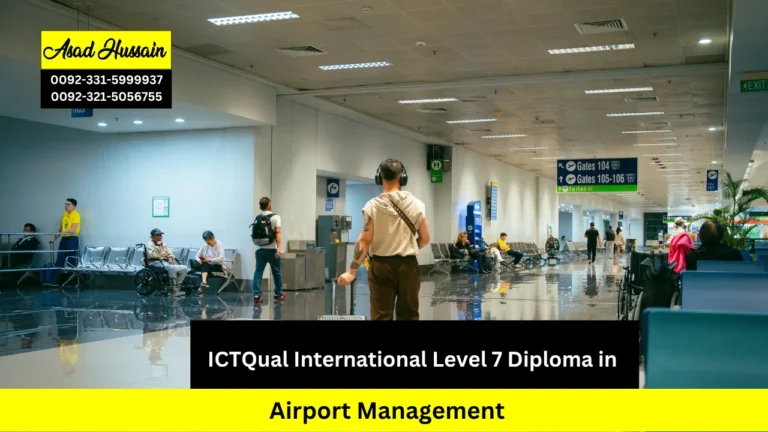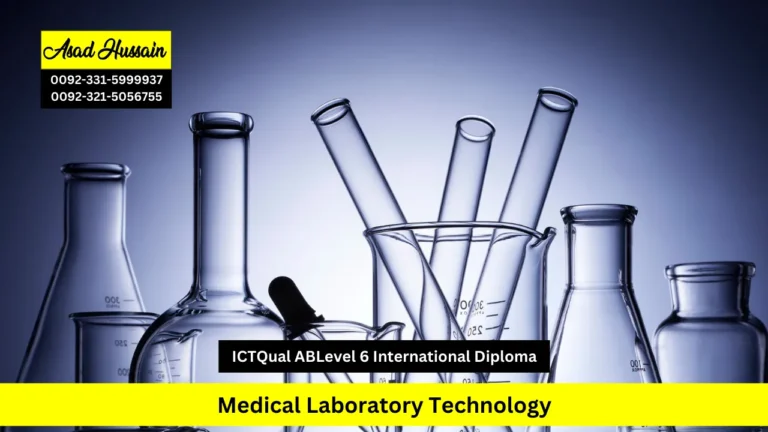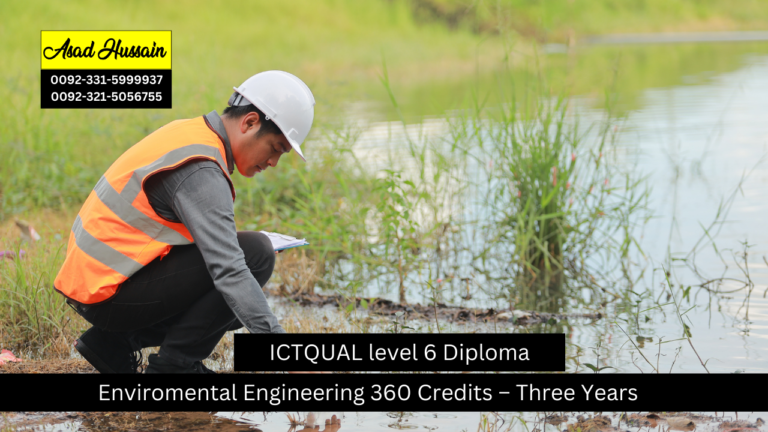The oil and gas industry remains a cornerstone of the global energy sector, driving economic growth, technological innovation, and energy security worldwide. The ICTQual AB Level 6 International Diploma in Oil & Gas Engineering is designed to equip professionals with advanced technical expertise, strategic understanding, and practical skills essential for thriving in this dynamic and challenging industry.
ICTQual ABLevel 6 International Diploma in Oil & Gas Engineering offers a blend of theoretical instruction and hands-on learning, covering critical areas such as petroleum engineering, drilling operations, production technology, safety management, and environmental compliance. Learners will gain a thorough understanding of industry standards, project management principles, and cutting-edge engineering solutions. The program emphasizes real-world applications, enabling participants to analyze, design, and optimize oil and gas operations while adhering to regulatory and safety frameworks.
Graduates of this course will be prepared for high-level roles in engineering, operations management, consultancy, and energy project planning. By combining analytical, technical, and managerial competencies, learners will develop the confidence to make informed, ethical, and sustainable decisions in diverse oil and gas environments. ICTQual AB Level 6 International Diploma in Oil & Gas Engineering is ideal for those seeking career advancement, professional recognition, or further academic progression in the energy sector.
Program Highlights
Study Units
Year 1 – Foundation in Oil & Gas Engineering
- Principles of Oil & Gas Engineering
- Introduction to Petroleum Exploration and Production
- Drilling and Well Engineering Fundamentals
- Construction Materials and Methods in Oil & Gas Projects
- Process Engineering Basics
- Project Planning and Scheduling in Oil & Gas Engineering
- Health, Safety, and Environmental Awareness in Oil & Gas
- Communication and Stakeholder Management in Energy Projects
- Digital Tools and Simulation Software in Oil & Gas
- Financial Management in Oil & Gas Projects
- Quality Assurance and Control in Engineering Operations
- Legal and Regulatory Frameworks in Oil & Gas
Year 2 – Intermediate Oil & Gas Engineering Practices
- Advanced Drilling Techniques and Well Operations
- Resource Management and Allocation in Oil & Gas Projects
- Process Design and Optimisation
- Pipeline and Infrastructure Engineering
- Procurement and Supply Chain Management in Energy Projects
- Project Risk Analysis and Mitigation
- Leadership and Team Management in Engineering Projects
- Offshore and Onshore Operations Management
- Sustainability and Environmental Management in Oil & Gas
- Project Monitoring and Reporting in Engineering Projects
- Problem-Solving and Decision-Making in Oil & Gas Projects
- Communication and Negotiation Skills in Energy Projects
Year 3 – Advanced Oil & Gas Engineering and Strategic Leadership
- Strategic Oil & Gas Project Management
- Advanced Production and Reservoir Engineering
- Energy Systems and Infrastructure Planning
- Innovation and Emerging Technologies in Oil & Gas
- Advanced Risk and Crisis Management in Engineering Projects
- Contract Management and Legal Compliance in Energy Projects
- Leadership in Oil & Gas Projects
- Advanced Project Control and Performance Measurement
- Project Governance and Compliance in Oil & Gas Operations
- Research Methods and Project Analysis in Energy Engineering
- Capstone Project in Oil & Gas Engineering
- Professional Development and Career Planning
To ensure candidates are well-prepared for the rigors of this advanced diploma, the following entry requirements are established:
Age Requirements
- Candidates should be 18 years or older at the time of enro;;ment in ICTQual ABLevel 6 International Diploma in Oil & Gas Engineering.
- Mature students with relevant professional experience may also be considered on a case-by-case basis.
Educational Requirements
- Completion of a Level 5 diploma or equivalent in engineering, petroleum studies, or a related technical field.
- Applicants with substantial vocational qualifications or a strong academic record in science and technology may also be eligible.
Professional Experience
- A minimum of 2 years of relevant work experience in the oil and gas sector, engineering projects, or industrial operations is recommended.
- Candidates without formal experience but with a strong academic background may benefit from a preparatory course such as the ICTQual AB Level 5 Diploma in Oil & Gas Engineering.
English Language Proficiency
- Proficiency in English is required for academic and professional communication.
- Candidates should demonstrate competence through IELTS 5.5+, TOEFL, or equivalent qualifications.
These entry requirements ensure that learners possess the foundational knowledge, professional insight, and language skills necessary to excel in the demanding field of oil and gas engineering, positioning them for successful career progression and academic achievement.
The ICTQual AB Level 6 International Diploma in Oil & Gas Engineering is designed to provide learners with comprehensive technical, operational, and leadership skills essential for success in the global oil and gas industry. Graduates will gain a deep understanding of petroleum engineering, process optimization, project management, and regulatory compliance while developing practical and strategic competencies for complex engineering projects.
Year 1 – Foundation in Oil & Gas Engineering
Principles of Oil & Gas Engineering
- Understand core principles of oil and gas engineering and energy production.
- Identify key components of petroleum systems and upstream operations.
- Apply theoretical knowledge to practical scenarios in laboratory exercises.
Introduction to Petroleum Exploration and Production
- Describe upstream exploration and production workflows.
- Understand the role of geology, geophysics, and engineering in oilfield operations.
- Apply foundational knowledge to case studies and simulations.
Drilling and Well Engineering Fundamentals
- Understand drilling operations, well design, and basic engineering principles.
- Identify drilling equipment, rigs, and operational procedures.
- Apply fundamental well engineering concepts in practical exercises.
Construction Materials and Methods in Oil & Gas Projects
- Recognize materials used in pipelines, facilities, and well construction.
- Apply principles of construction and engineering methods in projects.
- Evaluate material selection for operational efficiency and safety.
Process Engineering Basics
- Understand process flow, separation techniques, and chemical engineering fundamentals.
- Apply process engineering concepts to oil and gas systems.
- Develop practical problem-solving skills in lab and simulation exercises.
Project Planning and Scheduling in Oil & Gas Engineering
- Understand project lifecycle, scheduling, and resource allocation.
- Develop basic project plans using industry-standard tools.
- Apply planning principles to optimize engineering operations.
Health, Safety, and Environmental Awareness in Oil & Gas
- Identify hazards, safety protocols, and environmental risks in energy projects.
- Implement regulatory and compliance measures for safe operations.
- Apply HSE principles in simulated field and operational exercises.
Communication and Stakeholder Management in Energy Projects
- Develop effective communication strategies for multidisciplinary teams.
- Engage and manage stakeholders to ensure project alignment.
- Apply reporting and documentation best practices in energy projects.
Digital Tools and Simulation Software in Oil & Gas
- Use digital applications and simulation software for engineering analysis.
- Apply software results to optimize project planning and operations.
- Gain practical proficiency in industry-standard digital tools.
Financial Management in Oil & Gas Projects
- Understand cost structures, budgeting, and financial planning for projects.
- Apply financial principles to optimize project expenditure.
- Conduct economic analysis for operational feasibility.
Quality Assurance and Control in Engineering Operations
- Implement quality assurance and control measures for oil and gas systems.
- Monitor compliance with technical standards and operational procedures.
- Apply QA/QC practices in practical and simulated project scenarios.
Legal and Regulatory Frameworks in Oil & Gas
- Understand national and international legal requirements and standards.
- Apply regulatory compliance to engineering and operational decisions.
- Integrate legal considerations into project management and risk mitigation.
Year 2 – Intermediate Oil & Gas Engineering Practices
Advanced Drilling Techniques and Well Operations
- Apply advanced drilling methods, including directional and offshore drilling.
- Evaluate well operations for efficiency and safety.
- Conduct practical exercises in advanced drilling scenarios.
Resource Management and Allocation in Oil & Gas Projects
- Optimize resource allocation for personnel, equipment, and materials.
- Apply project management tools to monitor and control resources.
- Ensure operational efficiency and cost-effectiveness in projects.
Process Design and Optimisation
- Design and optimize oil and gas processes for maximum efficiency.
- Apply chemical engineering and process flow principles to real-world projects.
- Evaluate and implement process improvements in laboratory and field exercises.
Pipeline and Infrastructure Engineering
- Understand pipeline design, construction, and operational requirements.
- Apply principles of infrastructure engineering for oil and gas projects.
- Evaluate technical and safety aspects of pipeline and facility systems.
Procurement and Supply Chain Management in Energy Projects
- Manage procurement processes, vendor selection, and supply chain logistics.
- Apply strategies to ensure timely delivery and cost efficiency.
- Evaluate supply chain performance and mitigate operational risks.
Project Risk Analysis and Mitigation
- Identify operational and technical risks in oil and gas projects.
- Develop risk mitigation strategies and contingency plans.
- Apply risk management tools and frameworks in practical exercises.
Leadership and Team Management in Engineering Projects
- Lead multidisciplinary teams in complex oil and gas projects.
- Apply leadership, conflict resolution, and decision-making strategies.
- Foster team collaboration and performance for operational excellence.
Offshore and Onshore Operations Management
- Understand operational differences and challenges in offshore vs. onshore projects.
- Apply management strategies for efficiency, safety, and regulatory compliance.
- Evaluate environmental and operational constraints for both environments.
Sustainability and Environmental Management in Oil & Gas
- Implement sustainable practices in oil and gas operations.
- Monitor environmental impacts and ensure regulatory compliance.
- Apply sustainable strategies in project planning and operational execution.
Project Monitoring and Reporting in Engineering Projects
- Track project performance using KPIs and reporting tools.
- Apply project management techniques for monitoring operations.
- Prepare professional reports and presentations for stakeholders.
Problem-Solving and Decision-Making in Oil & Gas Projects
- Analyze operational challenges and develop practical solutions.
- Apply structured decision-making frameworks for complex scenarios.
- Demonstrate critical thinking in simulated and real-world projects.
Communication and Negotiation Skills in Energy Projects
- Negotiate effectively with clients, suppliers, and stakeholders.
- Apply communication strategies for project alignment and dispute resolution.
- Develop professional reporting and presentation skills.
Year 3 – Advanced Oil & Gas Engineering and Strategic Leadership
Strategic Oil & Gas Project Management
- Lead large-scale oil and gas projects with strategic oversight.
- Plan, execute, and optimize projects for efficiency and compliance.
- Apply advanced project management tools for decision-making and resource allocation.
Advanced Production and Reservoir Engineering
- Optimize production processes using reservoir engineering techniques.
- Apply analytical tools to evaluate reservoir performance.
- Implement strategies to maximize recovery and efficiency.
Energy Systems and Infrastructure Planning
- Design and plan energy systems and infrastructure for oil and gas projects.
- Apply engineering principles to integrate systems efficiently.
- Evaluate long-term operational and sustainability considerations.
Innovation and Emerging Technologies in Oil & Gas
- Explore digitalization, automation, and innovative solutions in energy projects.
- Apply emerging technologies to improve operational efficiency and safety.
- Evaluate technology integration for project optimization.
Advanced Risk and Crisis Management in Engineering Projects
- Develop comprehensive risk management and crisis response plans.
- Apply operational, technical, and financial risk assessment strategies.
- Conduct emergency preparedness and simulation exercises.
Contract Management and Legal Compliance in Energy Projects
- Manage contracts, compliance, and regulatory obligations.
- Evaluate legal and contractual risks in project execution.
- Apply international standards to operational decisions.
Leadership in Oil & Gas Projects
- Lead teams in high-pressure operational and strategic environments.
- Apply leadership, motivation, and conflict management skills.
- Develop strategies for team performance and operational success.
Advanced Project Control and Performance Measurement
- Monitor and analyze project performance metrics.
- Apply advanced reporting, analytics, and performance improvement methods.
- Optimize operational efficiency through data-driven decisions.
Project Governance and Compliance in Oil & Gas Operations
- Ensure adherence to governance frameworks and regulatory standards.
- Implement compliance strategies across all operational levels.
- Evaluate project governance for accountability and operational excellence.
Research Methods and Project Analysis in Energy Engineering
- Conduct independent research on technical and operational challenges.
- Apply quantitative and qualitative methods for project analysis.
- Develop professional reports, presentations, and recommendations.
Capstone Project in Oil & Gas Engineering
- Integrate technical, operational, and managerial knowledge in a comprehensive project.
- Solve real-world challenges using industry-standard practices.
- Present project outcomes with professional documentation and communication skills.
Professional Development and Career Planning
- Develop lifelong learning strategies and professional growth plans.
- Apply ethical and professional standards in oil and gas operations.
- Prepare for leadership, technical, and strategic roles in the global energy sector.
The ICTQual AB Level 6 International Diploma in Oil & Gas Engineering is designed for professionals and learners seeking to enhance their knowledge, technical expertise, and practical skills in the dynamic oil and gas industry. ICTQual AB Level 6 International Diploma in Oil & Gas Engineering is suitable for individuals from diverse professional backgrounds who aspire to advance their careers, contribute to sustainable energy practices, or transition into high-demand technical roles within the sector.
1. Educational Instructors and Trainers
- Develop advanced expertise to deliver high-quality instruction in petroleum engineering and energy management.
- Gain practical insights and real-world case studies to enhance training programs and student engagement.
2. Environmental Advocates and Activists
- Acquire in-depth knowledge of sustainable practices and environmental compliance in oil and gas operations.
- Learn to assess and mitigate the environmental impact of energy projects while promoting safety and regulatory adherence.
3. Students and Recent Graduates
- Build a strong foundation in technical and operational principles of the oil and gas sector.
- Gain practical, industry-relevant skills to secure entry-level positions or pursue further academic studies.
4. Career Changers
- Transition from related technical or industrial fields into the oil and gas sector with advanced qualifications.
- Develop transferable skills in project management, health and safety, and digital tools for energy projects.
5. Policy Makers and Regulators
- Enhance understanding of legal frameworks, regulatory compliance, and industry standards in energy projects.
- Apply technical knowledge to shape policies, ensure regulatory adherence, and oversee sustainable energy operations.
This diploma ensures that learners from these diverse backgrounds acquire the necessary technical knowledge, managerial capabilities, and ethical understanding to excel in the oil and gas industry. Graduates will be prepared to take on strategic, operational, and leadership roles, contributing effectively to the growth, safety, and sustainability of energy projects worldwide.

